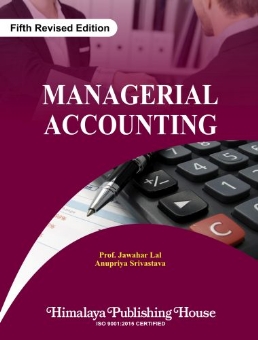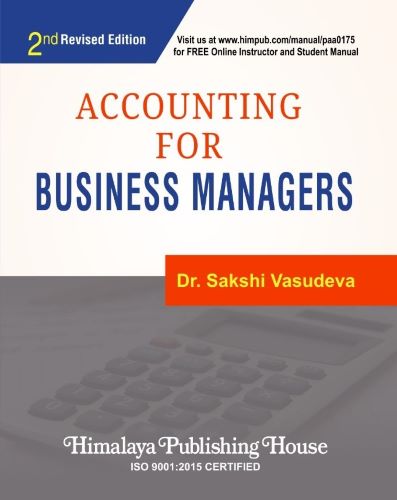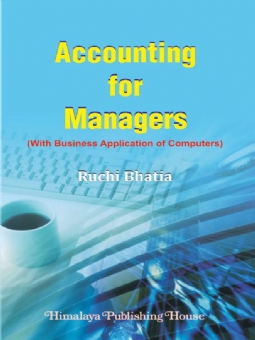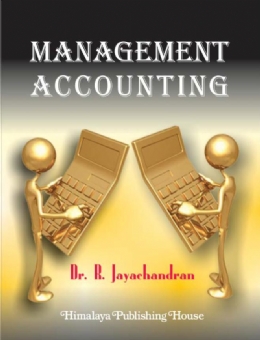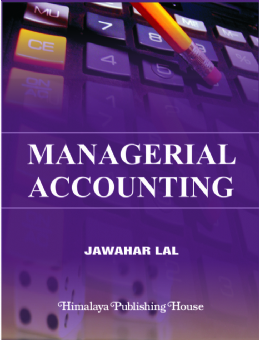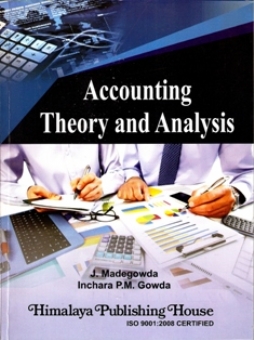Management Accounting deals with the development and use of accounting information by different organisations for the purpose of decision making, planning, control and performance evaluation. The field of management accounting has been influenced greatly by competitive and complex business environment. This requires that management accounting as a discipline should help the managers who face with managerial problems in their organisations. Managers of Indian companies need to make business decisions with sound knowledge and understanding of uses of accounting information for the efficient and profitable functioning of their enterprises.
The text “Managerial Accounting” focuses on the uses of managerial accounting information to resolve different managerial issues emerging in different organisations. The book makes a comprehensive coverage of important topics, current trends in management accounting and presents the concepts, techniques and use of accounting information in a clear, concise and logical manner.
The book is structured in five parts.
Part One introduces the subject of Management Accounting and focuses on Nature of Management Accounting, Cost Concepts and Classifications.
Part Two has Cost Accumulation and Product Costing as the focal point and discusses Job Costing, Process Costing, Full Costing and Activity-based Costing.
Part Three is devoted to Managerial Decision Making and presents discussion on Variable Costing, Cost-Volume-Profit Analysis, Short-run Managerial Decisions and Pricing Policy and Decision.
Part Four focuses on Planning and Control and Performance Evaluation and covers the topics of Budgeting Process, Standard Costing and Variance Analysis, Responsibility Accounting, Performance Measurement, and Transfer Pricing and Management Control Systems.
Part Five looks at some specialised topics relevant to Management Accounting function of an organization and provides exposure on Management Information Systems and Financial Statement Analysis.
The book contains many pedagogical features to give a balanced blend of conceptual framework, managerial accounting techniques and practical use of accounting information. Some of the pedagogical features are:
– Comprehensive and up-to-date coverage of the subject.
– Clear, concise and readable presentation.
– Real-world solved problems included in the chapters for better understanding of managerial accounting principles and techniques.
– Inclusion of charts, diagrams and figures to help in understanding the discussion easily and quickly.
– Thought-provoking and real-life theory questions given at the end of all chapters.
– Exercises and problems given in an easy to complex manner to help the students for better learning and understanding of the material.
The book is intended primarily for M.Com. and M.B.A. students of Indian Universities and Management Institutes. The book will be equally useful to the students who are preparing for CFA, C.A., I.C.W.A. Company Secretaryship and other professional examinations. Also, the book will adequately fulfil the requirements of those who are studying management accounting for the first time, those who plan a management and finance career, and those who are interested in learning and understanding management accounting.
Contents –
PART ONE: FUNDAMENTALS
Chapter 1: Nature of Managerial Accounting
Chapter 2: Cost Concepts and Classifications
PART TWO: COST ACCUMULATION AND PRODUCT COSTING
Chapter 3: Product Costing: Job Costing and Process Costing
Chapter 4: Full Costing
Chapter 5: Activity-Based Costing (ABC)
PART THREE: MANAGERIAL DECISION MAKING
Chapter 6: Variable (Marginal) Costing
Chapter 7: Cost-Volume-Profit (CVP) Analysis
Chapter 8: Short-Run Managerial Decisions and Analysis of Relevant Information
Chapter 9: Pricing Policy and Decision
PART FOUR: PLANNING, CONTROL AND PERFORMANCE EVALUATION
Chapter 10: Budgeting Process
Chapter 11: Standard Costing and Variance Analysis
Chapter 12: Responsibility Accounting, Performance Measurement and Transfer Pricing
Chapter 13: Management Control Systems
PART FIVE: SPECIALISED TOPICS
Chapter 14: Management Information Systems (MIS)
Chapter 15: Financial Statement Analysis

